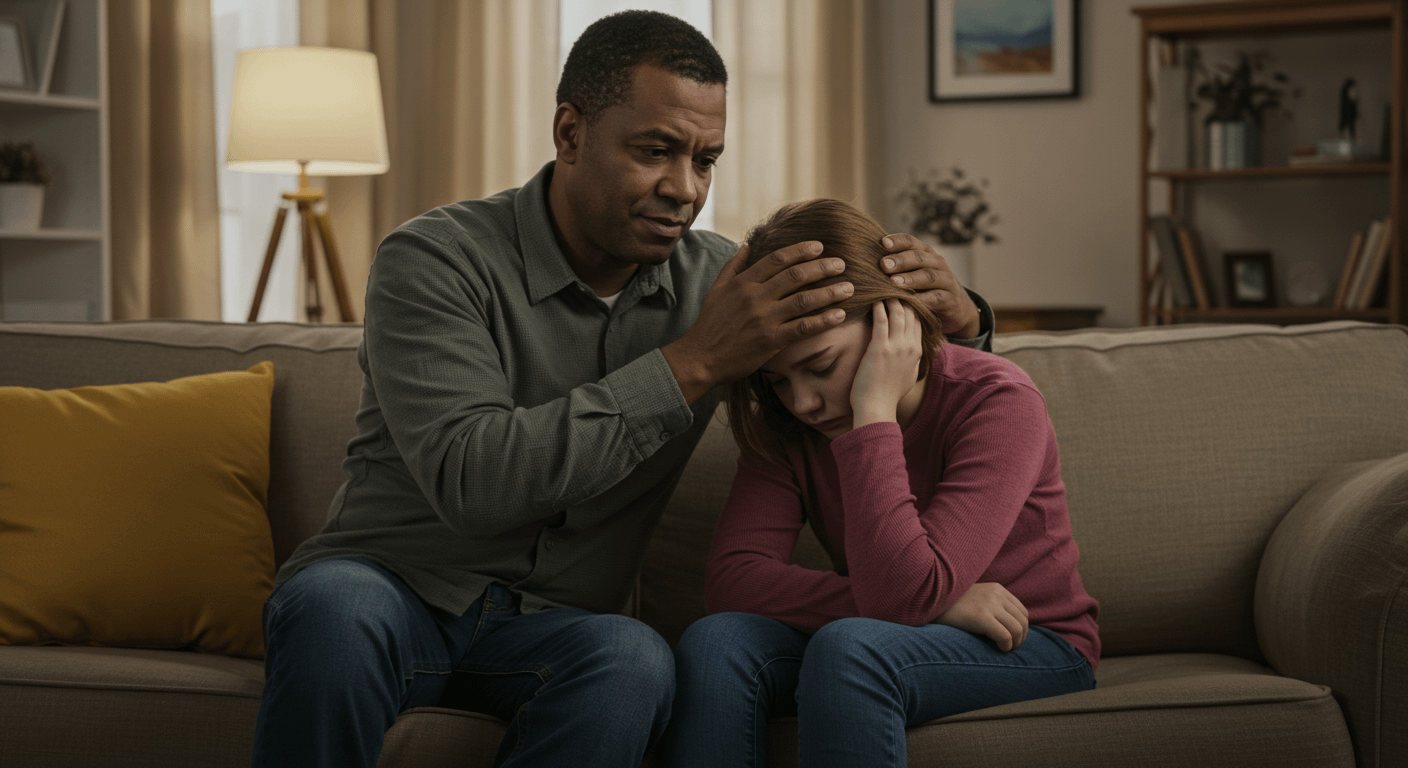
5 Steps For Helping Your Teen Deal With Bullying
Helping your teen deal with bullying is one of the most important challenges parents face today. Bullying today looks very different than it did a generation ago. With social media and smartphones, there is often no escape—bullying can happen in person, at home, and even in the middle of the night. But with the right support, teens can learn to stand strong and heal fully.

What does this mean for parents? It means your child could be facing relentless harassment—at school, at home, and even while lying in bed at night scrolling through their phone.
But here’s the good news: with the right strategies, you can help your teen overcome bullying, build resilience, and restore confidence.
Why Do People Bully? Understanding the Root Cause
Before we jump into solutions, it’s important to understand why bullying happens. Contrary to what many believe, bullying is rarely about the victim—it’s about the bully.
Most bullies are battling internal pain, feelings of insecurity, or a need for control. By targeting others, they feel a temporary sense of power. It’s often a mask to hide their own struggles, which could include:
- Low self-esteem
- Peer pressure (trying to impress a group)
- Jealousy or envy
- Unresolved trauma or abuse at home
When your teen understands this, it can shift their perspective. Instead of thinking, “What’s wrong with me?” they start realizing, “This says more about the bully than it does about me.”
Why Does Bullying Seem So Common Today?
Two words: The Internet.
Unlike in the past, kids today live in a world of constant connectivity. Bullying no longer ends at the school gate—it follows them home through:
- Text messages
- Group chats
- Social media posts and comments
- Anonymous apps
This phenomenon is known as cyberbullying, and it’s one of the fastest-growing forms of harassment. Why? Because people feel emboldened behind screens, saying things they would never say face-to-face.
Research shows that cyberbullying can be even more harmful than physical bullying because:
✔ It’s 24/7 – no safe space
✔ It can go viral, humiliating the victim publicly
✔ It leaves permanent digital scars (screenshots, posts)
What Bullying Does to a Teen’s Mental Health
Bullying is not just “kids being kids.” It has serious psychological consequences that can last a lifetime. Some of the most common effects include:
- Anxiety and depression
- Low self-esteem
- Social withdrawal
- Declining academic performance
- Suicidal thoughts (in severe cases)
In fact, according to the CDC, students who are bullied are twice as likely to experience depression and anxiety.
Some teens even internalize the insults and begin to believe the lies they hear, thinking: “Maybe I really am ugly, stupid, or worthless.” This toxic thinking can spiral into long-term mental health issues.
How to Help Your Teen When They Are Being Bullied
As a parent, you play the most important role in helping your teen navigate this challenge. Here’s how to step in effectively:
✅ 1. Start by Listening (Not Lecturing)
Your first instinct might be to give advice—but start by listening. Ask open-ended questions like:
- “What happened today that upset you?”
- “How did that make you feel?”
Validate their emotions. Avoid saying things like “Just ignore them” or “It’s not a big deal.” To your teen, it IS a big deal.
✅ 2. Teach Assertiveness Skills
Help your teen develop responses that are firm but not aggressive. For example:
- “Please don’t talk to me like that.”
- “That’s not okay—stop.”
Role-play scenarios so they feel prepared. Confidence is a shield against bullies.
✅ 3. Report Serious Bullying
If your teen is being threatened, physically harmed, or targeted with hate speech, report it immediately to:
✔ School officials
✔ Law enforcement (if necessary)
Bullying is NOT just a school problem—it’s a legal issue when it involves threats or harassment.
✅ 4. Monitor Online Activity (Without Spying)
Explain why you need to check their social media and messages—not to invade privacy but to protect them. Encourage them to block bullies, change privacy settings, and report abusive accounts.
✅ 5. Encourage Positive Friendships
Healthy friendships can act as a buffer against bullying. Encourage your teen to spend time with people who uplift them—online and offline.
✅ 6. Seek Professional Support
If your teen shows signs of anxiety, depression, or withdrawal, seek counseling. A mental health professional can help them process trauma and build resilience.
Practical Tips for Teens Facing Cyberbullying
- Don’t respond to hateful comments—block and report instead.
- Screenshot evidence in case it’s needed later.
- Avoid oversharing personal details on social media.
- Take digital detox breaks to reduce stress.
What NOT to Do as a Parent
- Don’t tell your teen to “just toughen up”
- Don’t minimize their experience
- Don’t confront the bully yourself—it can make things worse
Frequently Asked Questions (SEO Bonus)
Q1: What are signs my teen is being bullied?
Look for mood changes, sudden drop in grades, loss of interest in activities, avoiding school, or being secretive about their phone.
Q2: Should I contact the bully’s parents?
Not directly. Go through official channels like school administration to avoid escalation.
Q3: How can I boost my teen’s confidence after bullying?
Encourage hobbies, sports, and activities that make them feel capable and valued. Praise effort, not just results.
Q4: Is cyberbullying worse than physical bullying?
Both are harmful, but cyberbullying can feel relentless because it happens 24/7 and leaves permanent digital scars.
Final Words of Encouragement
Remind your teen:
They are not the problem. They are valuable, loved, and deserve respect and safety—both offline and online.
As a parent, be their anchor. Be their safe space, their biggest cheerleader, and their strongest voice when they can’t find theirs. Together, you can navigate this storm and help your teen come out stronger and more resilient.



